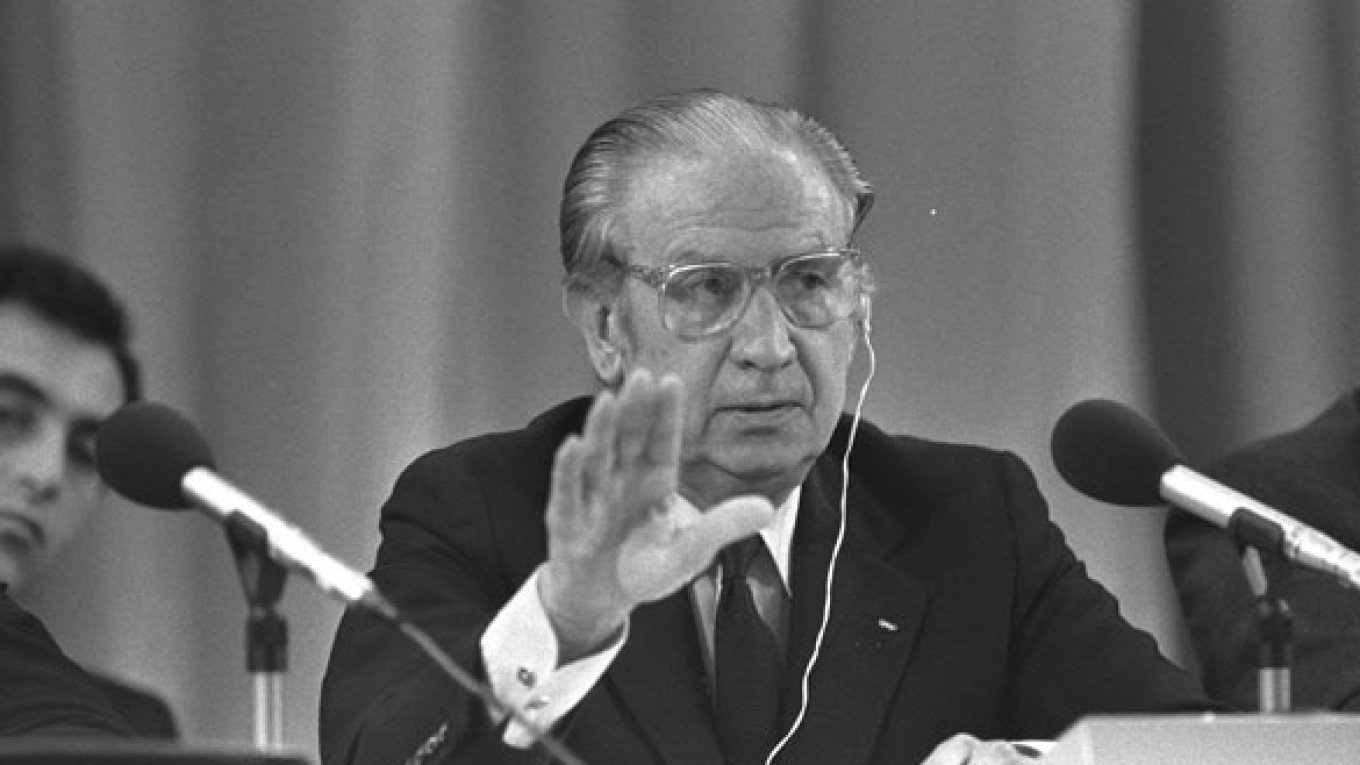MADRID — Juan Antonio Samaranch, who steered the Olympic movement through two turbulent decades marked by political boycotts, bribery and drug scandals and a greater emphasis on commercialism, has died at the age of 89.
Appointed honorary life president of the International Olympic Committee (IOC) when he stepped down as president in 2001, Samaranch was admitted to the Quiron clinic in his native Barcelona on Sunday with acute heart problems and passed away Wednesday afternoon.
He died as a result of "cardio-respiratory failure" hospital doctor Rafael Esteban said in a statement.
"I cannot find the words to express the distress of the Olympic Family," IOC president Jacques Rogge said.
"We have lost a great man, a mentor and a friend who dedicated his long and fulfilled life to Olympism."
President Dmitry Medvedev and Prime Minister Vladimir Putin expressed sadness at Samaranch's passing. He had been a "good friend of Russia's" and his death was "a huge, unrecoverable loss for the Olympic family," Putin said.
Once one of the most powerful figures in world sport, wielding influence in the Olympic movement right up until his death, Samaranch had suffered a number of health problems since his retirement and was hospitalized several times.
He ran the IOC with absolute authority for two decades, and the 1992 Olympics in Barcelona, which transformed the Catalan port city, were seen as his personal triumph.
His supporters believe that he showed political skill in a difficult period — a U.S.-led boycott of the 1980 Moscow Olympics followed by an Eastern bloc retaliation in 1984 at Los Angeles — to lead the Games into the era of professional sport and turn it into a profitable enterprise.
His critics argue that many of the original values of the movement were obscured in the search for commercial success, leading to high-profile bribery and drugs scandals.
Samaranch stepped down in July 2001, 21 years after he had been elected as the IOC's seventh president, and was made life president when he handed power to Rogge.
"He made the IOC strong, financially strong," former committee vice president Lambis Nikolaou, who has been a member since 1986, told Reuters.
"He planned its expansion and was responsible for this unprecedented growth of the movement," he added.
"The last time I saw him was in Vancouver, and his assistant told me Samaranch wanted to leave after the Games were over to go on a long trip to China or somewhere far away. That was Samaranch. He was just unstoppable."
A Message from The Moscow Times:
Dear readers,
We are facing unprecedented challenges. Russia's Prosecutor General's Office has designated The Moscow Times as an "undesirable" organization, criminalizing our work and putting our staff at risk of prosecution. This follows our earlier unjust labeling as a "foreign agent."
These actions are direct attempts to silence independent journalism in Russia. The authorities claim our work "discredits the decisions of the Russian leadership." We see things differently: we strive to provide accurate, unbiased reporting on Russia.
We, the journalists of The Moscow Times, refuse to be silenced. But to continue our work, we need your help.
Your support, no matter how small, makes a world of difference. If you can, please support us monthly starting from just $2. It's quick to set up, and every contribution makes a significant impact.
By supporting The Moscow Times, you're defending open, independent journalism in the face of repression. Thank you for standing with us.
Remind me later.


